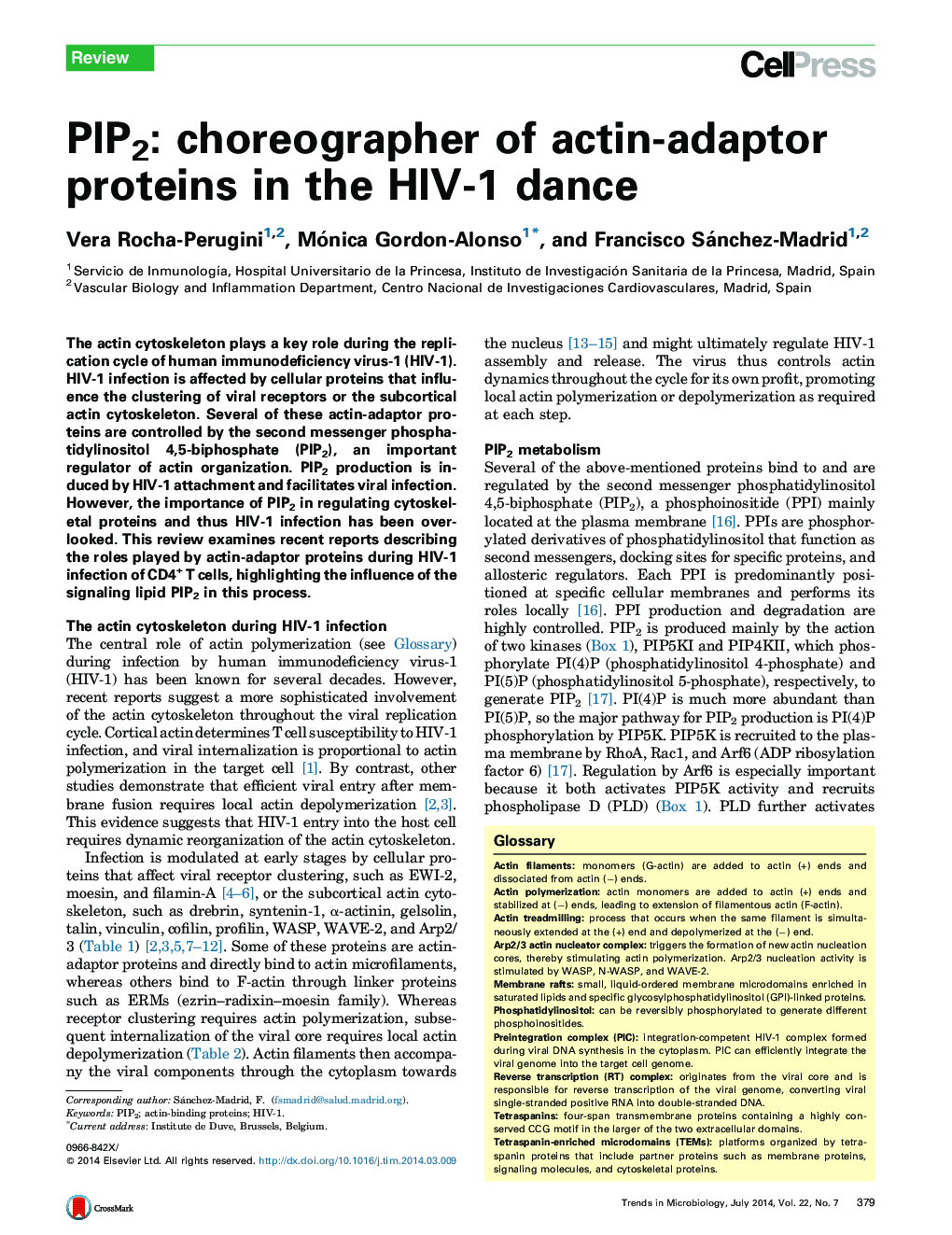| Article ID | Journal | Published Year | Pages | File Type |
|---|---|---|---|---|
| 3421939 | Trends in Microbiology | 2014 | 10 Pages |
•Phosphatidylinositol 4,5-biphosphate (PIP2) fluctuations correlate with F-actin changes throughout HIV-1 infection.•HIV-1 attachment triggers PIP2 production.•PIP2 production is required for HIV-1 entry and assembly.•The PIP2 pool might control actin turnover during other steps of the HIV-1 cycle.
The actin cytoskeleton plays a key role during the replication cycle of human immunodeficiency virus-1 (HIV-1). HIV-1 infection is affected by cellular proteins that influence the clustering of viral receptors or the subcortical actin cytoskeleton. Several of these actin-adaptor proteins are controlled by the second messenger phosphatidylinositol 4,5-biphosphate (PIP2), an important regulator of actin organization. PIP2 production is induced by HIV-1 attachment and facilitates viral infection. However, the importance of PIP2 in regulating cytoskeletal proteins and thus HIV-1 infection has been overlooked. This review examines recent reports describing the roles played by actin-adaptor proteins during HIV-1 infection of CD4+ T cells, highlighting the influence of the signaling lipid PIP2 in this process.
